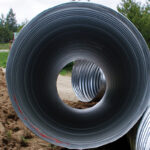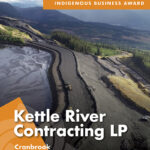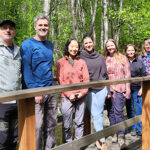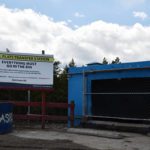Home »

Citizen scientists continue building community awareness
Eight local watershed groups are proud to share their 2014 Annual Water Quality Monitoring Reports
During the inception of the Columbia Basin Watershed Network (CBWN) in 2005, watershed groups identified a desire to collect water quality information for smaller watersheds in the Columbia Basin. As a result, the Columbia Basin Water Quality Monitoring Project (WQMP) was born and the project has evolved into a long-term monitoring program enhancing technical skills and understanding in local stewardship groups.
“The collection of long-term data about streams in the Columbia Basin is very important, both from the standpoint of understanding the current quality of our watercourses but also from the view of establishing a baseline so that changes over time can be noted,” said Laura Duncan, WQMP Technical Coordinator. “Groups involved in the project are now equipped with a baseline of water quality.”
Eight collaborating watershed groups are currently overseeing the project, including in the East Kootenay: Golden Wildsight; Invermere Wildsight; Joseph Creek Streamkeepers, Cranbrook; St. Mary Valley Rural Residents Association, Kimberley.
And in the Central Kootenay: Arrow Lakes Stewardship Society, Burton; Friends of the Lardeau River, Howser; Salmo Watershed Streamkeepers Society; Slocan Streamkeepers Society, Winlaw.
The water groups are collecting a large suite of water quality parameters such as turbidity, pH, specific conductivity, dissolved oxygen, water temperature, inorganic materials, nutrients, and metals. Groups were trained to collect benthic macro-invertebrates, habitat and water quality data using the Canadian Aquatic Biomonitoring Network (CABIN) protocols established by Environment Canada. Water quality data collected by groups at potentially threatened sites are compared to other reference sites where anthropogenic effects are minimal and environmental characteristics are similar.
Results from the 2014 Annual Water Quality Monitoring Reports suggests that a number of smaller watersheds in the Columbia Basin are impacted relative to the preliminary Okanagan-Columbia reference model. Although it’s difficult to determine whether these differences in stream health between the reference model and WQMP sites are the result of natural variations in stream habitat and/or stream water quantity and quality, it’s hypothesized that many of these difference could be the result of land use disturbances and climate change.
Not only does the project provide important baseline data and build capacity in stewardship groups, it provides a platform for groups to collaborate, mentor each other and learn together.
“The WQMP is an excellent example of collaboration for water monitoring across the Columbia Basin and helps to heighten the profile of the good work of grassroots groups, especially as attention to water and water management in the Basin grows due to the Columbia River Treaty and Water Sustainability Act processes,” said Heather Leschied, Wildsight.
The release of the Annual Water Quality Monitoring Reports is a first step in linking the monitoring project with community awareness activities. Groups currently overseeing the project will continue to work hard to promote local awareness and education.
“The WQMP has increased our group’s capacity to carry out our mission to work with the community to assess and restore the aquatic environment and raise awareness about aquatic issues” said Jennifer Yeow, Slocan River Streamkeepers. “The project provides a natural teaching tool for our school outreach and has provided baseline data that is recognized as credible by our community.”
Another important goal of the project is to make the raw data accessible for other users. The online WQMP database, hosted by the CBWN webpage, will be updated now that the data has been reported. For more information visit www.cbwn.ca or email [email protected]
Above photo: WQMP members monitoring water quality







